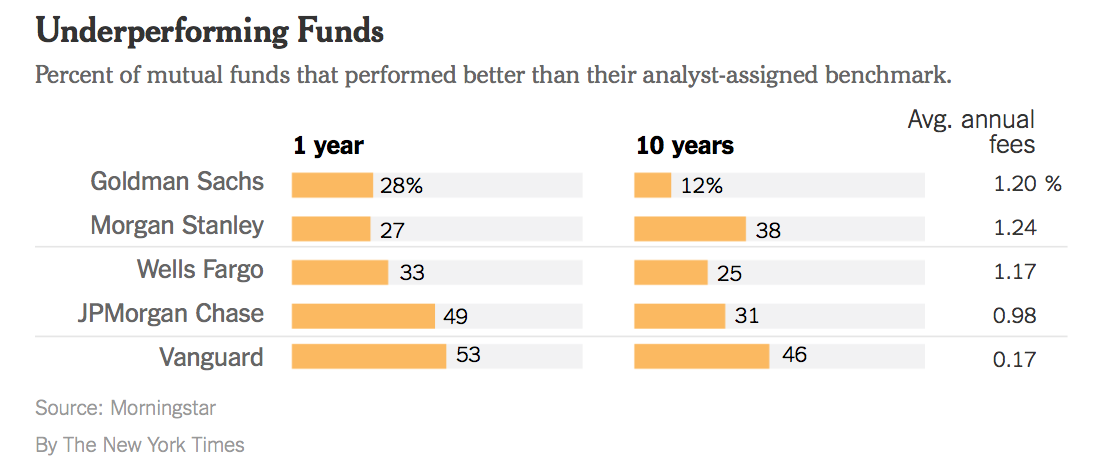How Expenses Impacted Returns At Bank Mutual Funds
One topic that should be covered more regularly here is investment expenses. A recent NY Times article looked at how bank sponsored mutual funds compared to their peers. The author hypothesized that the reason the bank sponsored funds underperformed Vanguard's offering was due to the much higher internal expense ratios.The expense ratio is a valuable tool to understand how much owning a certain fund will cost you. The expense ratio is calculated by adding up manager fees, administrative costs, and any sales fees (some funds classes include some sort of payment to the rep selling the fund, but not always.) This total expense is calculated per share and divided by the share price to tell investors how much on a percentage basis is going to the fund each year.Investors can't rely solely on the expense ratio to analyze fund expenses. The expense ratio doesn't capture trading costs and it doesn't capture the tax inefficiencies that come from excessive trading.This bring us to the reason why I thought it was important that I share this article with you. Take a look at this table:
"The banks have suggested in marketing materials that their investing prowess differentiates their offerings from the pack. But the relatively high fees that banks charge for their mutual funds subtract from the ultimate returns and make it harder to compete against their most successful competitor in recent years, the giant fund manager Vanguard" - NY Times
What the table shows is that within the samples, the fund families with the highest expenses did the worst versus their appropriate benchmark. The key point here is found in the 10 year numbers and the effect that increased costs have year after year. By year 10, the number of funds beating their index is dramatically reduced. Even in the case of Morgan Stanley, which fared the best of the group of bank sponsored funds, they still underperformed Vanguard.It's a good illustration of how investment expense can erode returns, especially when compounded over long time frames.
Source: NY Times, “Wall Street Banks’ Mutual Funds Can Lag Returns,” April 12th, 2015
